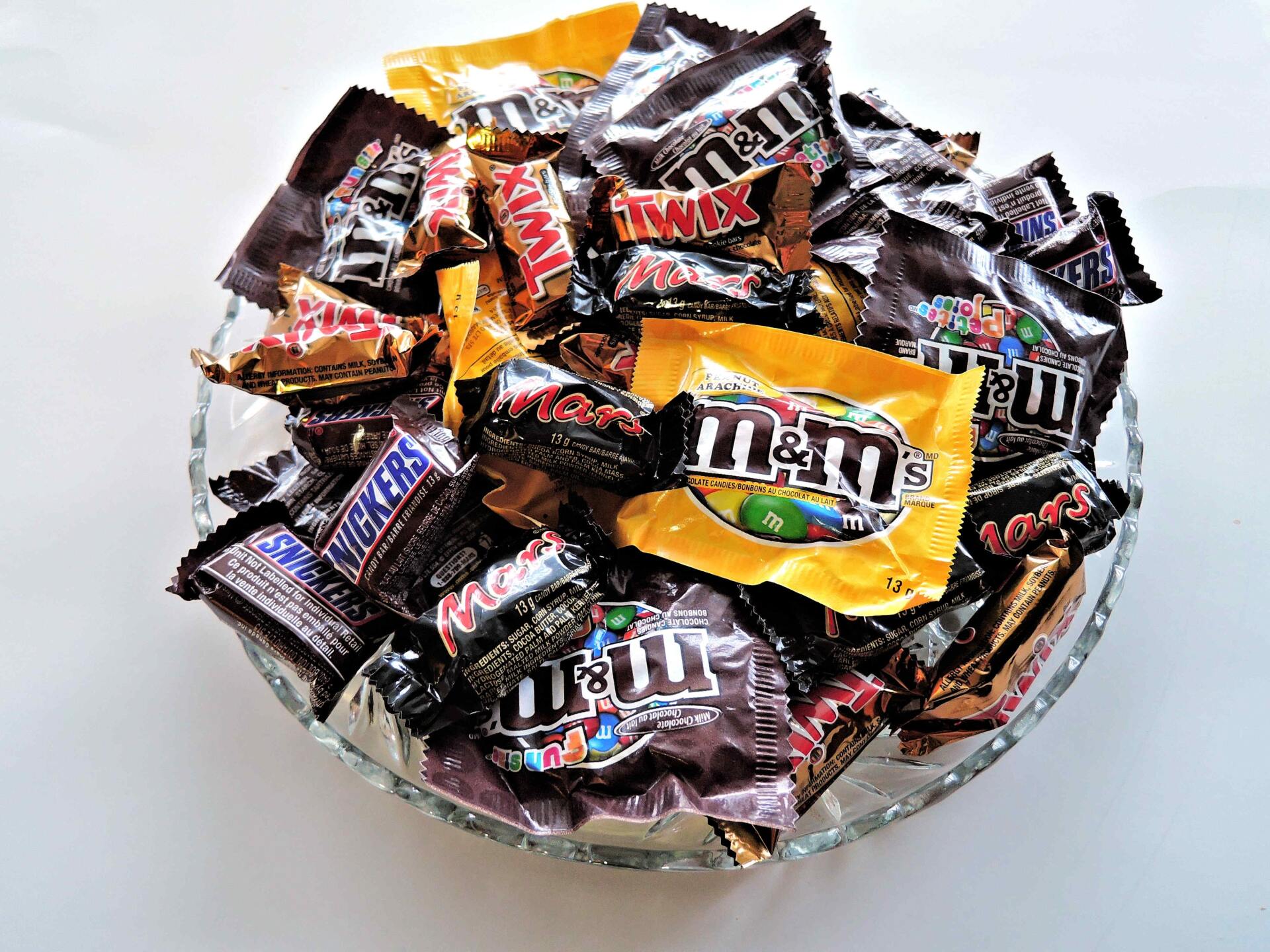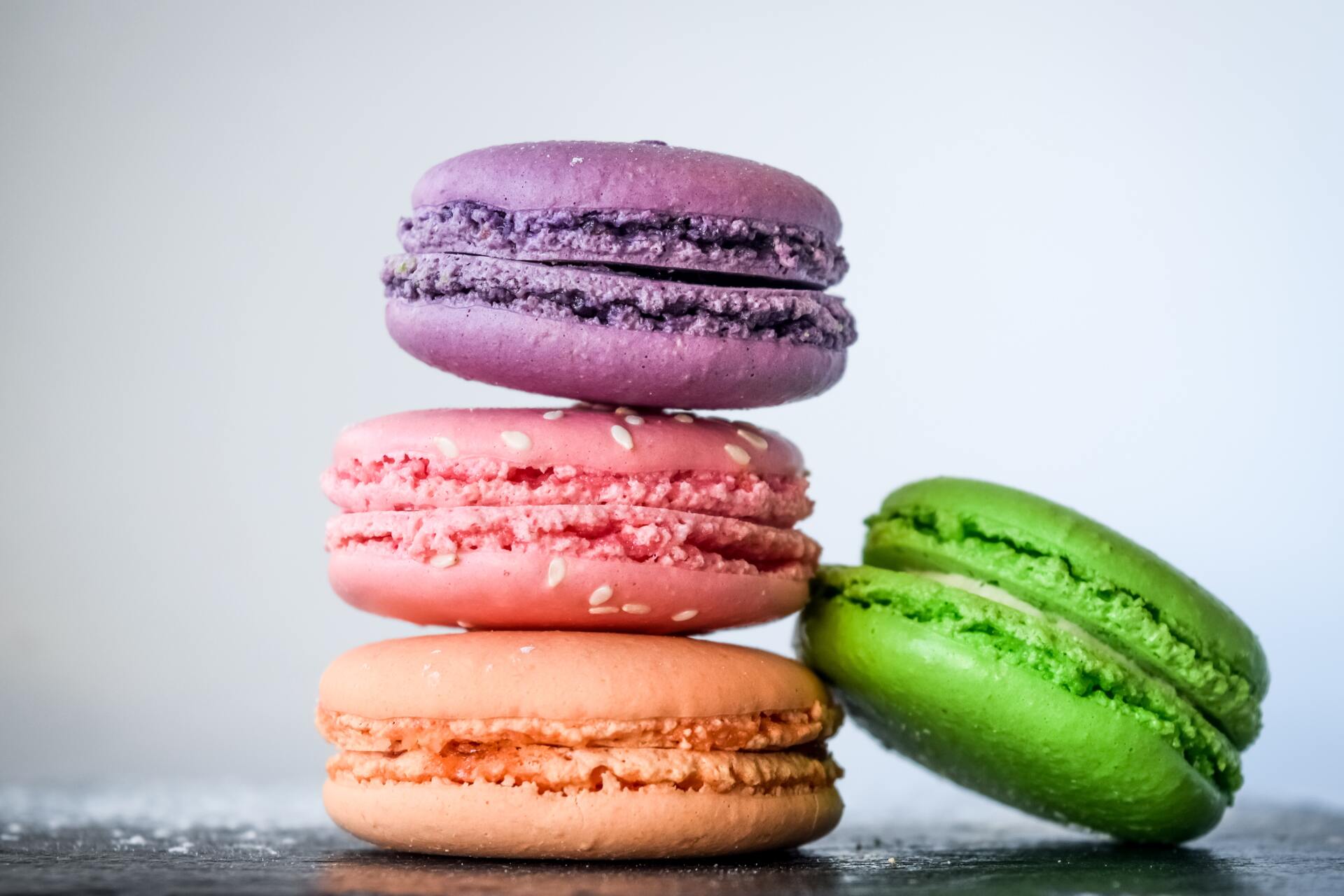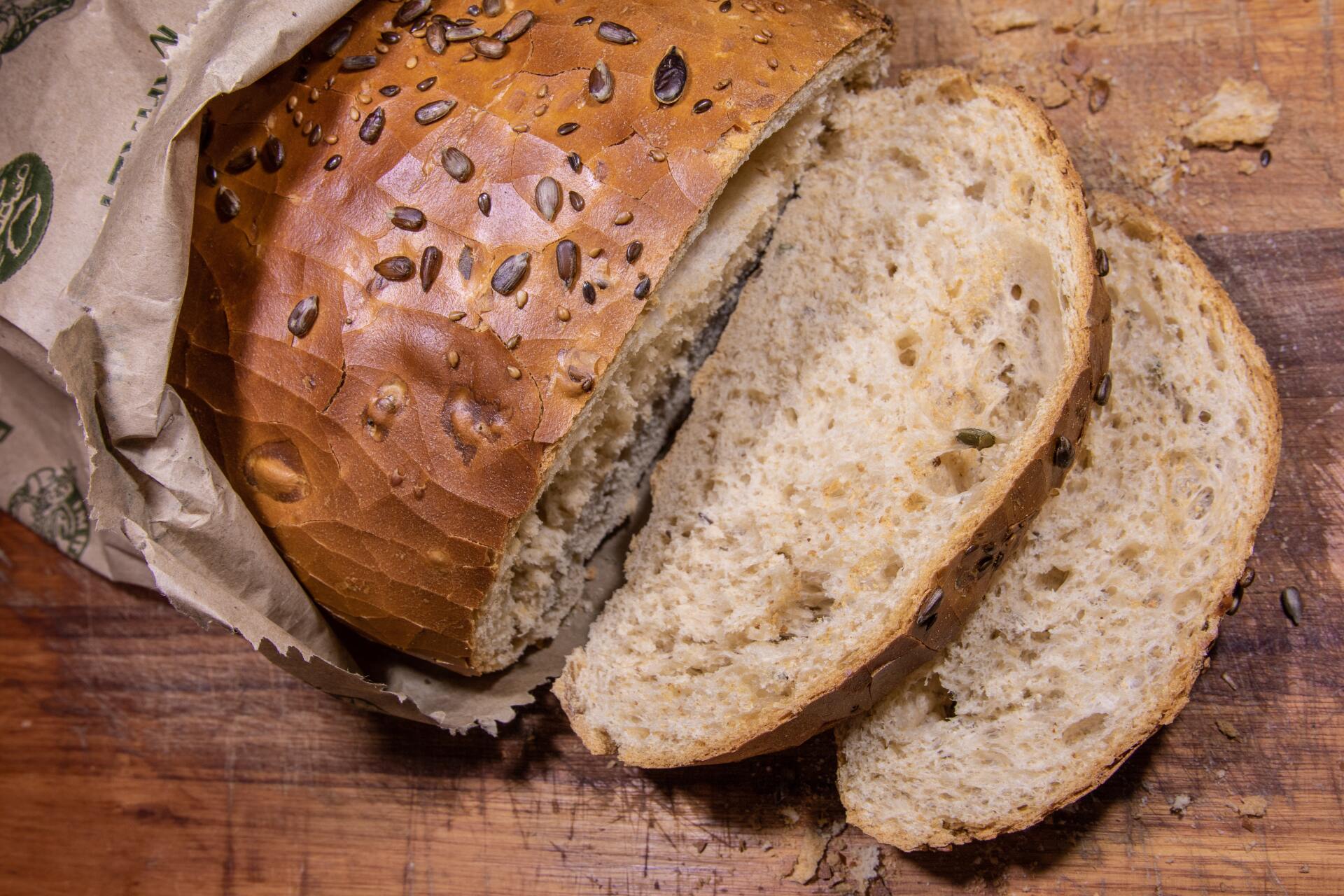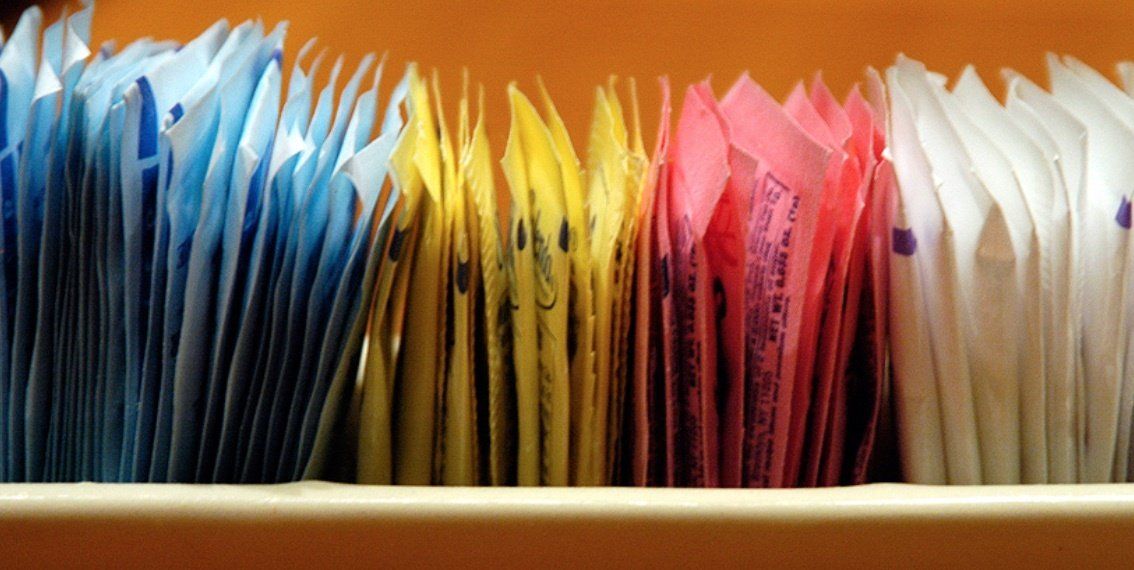Sweet, sweeter, sweetest
Sugars
With so much hype about there being too much sugar in the American diet, it can be hard to figure out what the sensible thing to do is, especially in the context of Halloween. And yet, sugar is a carbohydrate that our bodies need and use for energy. Let's dig into this a bit more...
- Naturally-occurring sugars include lactose in milk, fructose in fruit and honey, glucose in fruits and vegetables, maltose in wheat and barley, sucrose, etc.
- Added sugars is the name given to sugars that are added to a food or beverage. Sugars are added for many reasons: to make food taste sweeter, extend its shelf life, add volume, balance acidity, preserve, improve its appearance, etc.
The benefit of naturally-occurring sugars is that they are found with other naturally-occurring fibers, minerals, protein, antioxidants, and more. The presence of these key nutrients, especially fiber, helps slow down the absorption process of the naturally occurring sugar, helping us avoid over-consumption.
Added sugars, on the other hand, are quickly digested and absorbed by our bodies, making it easier to over-consume. They are generally found in foods that are low in vitamins and minerals and generally high in calories, what are called "discretionary foods", or foods that are not necessary to meet our dietary needs. These energy-high foods and beverages can also displace the more nutritious foods in our diet.
Consuming too much added sugars may:
- Contribute to weight gain since it is easy to get extra calories when consuming foods and beverages that are sugar-sweetened. Becoming overweight can increase the risk of type 2 diabetes, as well as some cancers and stroke. For children, consuming too much added sugars may also set the stage for obesity as an adult.
- Increase triglycerides, which are a type of fat in the bloodstream and fat tissue. Increased triglyceride levels may increase the risk of heart disease.
- Increase tooth decay because high-sugar diets can feed bacteria that produce acid which attacks tooth enamel, causing permanent cavities in teeth.
- Lead to a greater accumulation of fat in the liver, which may lead to fatty liver disease.
One way of lowering added sugars is to choose wholegrain carbohydrates instead of refined carbohydrates (such as white pasta and white rice).
Making a habit of reading labels on processed foods and learning what to look for will also help. After all, not taking home foods and beverages high in added sugars would encourage a healthier diet. As far as labels, you'll want to look at:
- the ingredients list — ingredients are listed in order of weight. The higher up the list, the bigger the proportion of that ingredient. Sugars may be listed as sucrose, glucose, dextrose, maltose, golden syrup, maple syrup, molasses, coconut sugar, agave syrup, high-fructose corn syrup, or others.
- the nutrition facts panel — sugars are listed under ‘Carbohydrates’. When comparing a regular version and a low sugar version of a product, you'll want to see how much sugar each has for the same serving size. If the serving sizes are different, compare how much sugar there is in the same amount of the food or beverage, for example, in 100 grams.
Some options for consuming less added sugars include:
- buying plain, unsweetened yogurt and sweetening it with fruit if you wish,
- drinking plain water or unsweetened drinks rather than sodas or energy drinks,
- flavoring foods with herbs and spices,
- using less sweetners at the table (this includes molasses, syrup, maple syrup as the body processes those as sugar),
- avoiding canned fruit in syrup, especially heavy syrup (opt for fresh fruit or canned fruit in water),
- cutting back on the sugar when baking (you'll probably not notice the difference if you cut the sugar in a recipe by 1/3 to 1/2).
Are sugar substitutes better?
The three types of sugar substitutes are:
- Artificial sweeteners — for example: aspartame, saccharin, and sucralose. They have no calories and are used widely by the food industry in products labelled ‘diet’ or ‘no sugar’. (However people with the rare genetic condition phenylketonuria, or PKU, can't have aspartame since it contains an amino acid, phenylalanine, that their body can't break down.) Some artificial sweetners are many times more sweet than sugar, so only a small amount is needed. This is the case for Sucralose, sold under the name Splenda, which is 600 times as sweet as sugar.
- Nutritive sweeteners — for example: fructose, isomalt, mannitol, xylitol, sorbitol, and polydextrose. They contain calories and have the same (or less) energy than sugar.
- Natural intense sweeteners — for example: stevia and monk-fruit extract. They are calorie-free and generally made from plants. Because they are much sweeter than sugar, only small amounts may be needed.
Some artificial sweetners that replace sugar can be calorie free, but they may still increase the chance of tooth decay. Evidence is mixed as to whether artificial sweetners help with weight loss, especially in the long term.
How about cutting out sugar altogether?
Diets that restrict all or just added sugars can result in short-term weight loss but that may not be sustainable.
A zero-sugar diet would involve cutting out all fruit and vegetables, milk, and some grains and legumes because of their natural sugar content. This puts a person at risk of nutritional deficiencies and is not recommended.
It is important to note that healthy carbohydrates are also needed by the beneficial gut bacteria that keep our digestive tract healthy.
The smart alternative is to
restrict added sugars since they are common in high-calorie, nutrient-poor, discretionary foods and drinks.

What to do?
It definitively takes a combination of will power, smart meal and snack planning, and support from family and friends, and it is not always possible to restrict added sugars or reduce our sugar intake -- we recognize that we're all human! Nevertheless, we could try it out by putting into practice any or all of these options:
- Ease into avoiding added sugars - Cut out or replace staples that you usually buy that contain a lot of added sugars, little by little. You might try initially replacing just breakfast cereals, for example, with eggs and brown toast, or unsweetened yogurt and fruit, etc. Then a month later, start taking an apple to work every day so that when you feel like snacking in the afternoon, you'll have an apple instead of a candy bar or a cookie.
- Moderation is key - It's ok to have an energy drink or pancakes and syrup from time to time. What's important is moderation.
- Be aware of the sugar content in foods that you consume - Take a look at the label of processed foods to have an idea of your daily sugar intake. It's knowing where you're consuming the sugar that will allow you to make changes that give you the biggest "bang for your buck".
- Don't be discouraged or feel guilty - It's ok to treat yourself, it's ok to not have will power of steel, and it's ok to feel that you didn't do what you set out to do for that day. Simply start over the next day! Just take each day (or break it down to each half day if that works better for you) as a new start and keep at it because it's the longer-term trend that counts.
- Be aware of the sugar and added sugars that your kids consume and discuss with them how they can reduce their sugar intake and what changes they're ready to commit to. Setting them up for success from a young age will be helpful for their long-term health.
Several of us at The Pharmacy at Wellington have tried these tips over time and they do work. Just persevere and change it up occasionally to keep your diet interesting and full of flavor. We're sure that you'll feel healthier for it!
For Halloween
To help build a healthier community, you might want to consider giving away non-edible items to trick-or-treaters, to avoid the question of sweets altogether. Some ideas:
- plastic creepy crawlies
- orange / black / bright green putty
- themed pencils
- themed erasers
- bubble makers
- glow-in-the-dark bracelets or necklaces
- themed stickers
- etc.
S-W-E-E-T !
References and Additional Information:
- US HHS on reading food labels -- https://www.nia.nih.gov/health/reading-food-labels
- US FDA on nutrition facts labels -- https://www.fda.gov/food/new-nutrition-facts-label/how-understand-and-use-nutrition-facts-label
- US FDA on high-density sweetners -- https://www.fda.gov/food/food-additives-petitions/additional-information-about-high-intensity-sweeteners-permitted-use-food-united-states
- Michigan State University on sweetners -- https://www.canr.msu.edu/search?tag=sweetener
- American Heart Association re tips on cutting down sugar -- https://www.heart.org/en/healthy-living/healthy-eating/eat-smart/sugar/tips-for-cutting-down-on-sugar
- UC Berkeley Sather Health on artifiical sweetners -- https://www.ocf.berkeley.edu/~sather/artificial-sweeteners-not-as-sweet-as-they-appear/
- Science News on artificial sweetners -- https://www.sciencenews.org/blog/scicurious/sour-side-artificial-sweeteners
- Australian New South Whales Health on sugar alternatives -- https://www.health.nsw.gov.au/heal/Pages/sweeteners.aspx
- Mayo Clinic on artificial sweetners -- https://www.mayoclinic.org/healthy-lifestyle/nutrition-and-healthy-eating/in-depth/artificial-sweeteners/art-20046936
- Mayo Clinic on added sugars -- https://www.mayoclinic.org/healthy-lifestyle/nutrition-and-healthy-eating/in-depth/added-sugar/art-20045328
- Department of Health, Australia, on sugar -- https://www.healthdirect.gov.au/sugar









